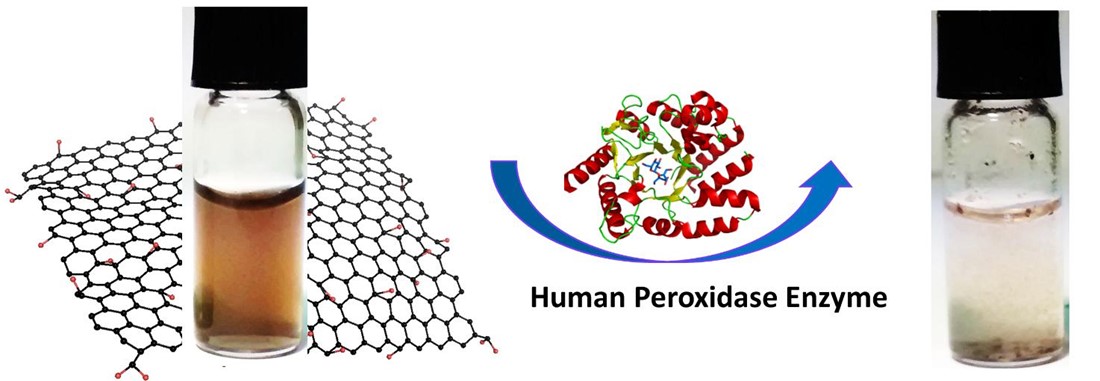
Dr Rajendra Kurapati
Assistant Professor Grade I (Chemistry)
+91 (0)471 - +91-4712778306
rkurapati@iisertvm.ac.in
Graphene oxide biodegrades with help of human enzymes 
Graphene Flagship researchers show how graphene oxide suspended in water biodegrades in a reaction catalysed by a human enzyme, with the effectiveness of the breakdown dependent on the colloidal stability of the suspension. The study should guide the development of graphene-based biomedical applications. (Ref: Kurapati et al. Small 2015)
News Sources: Graphene Flagship, Science Daily, Phy.Org, Nano Werk
A human enzyme can biodegrade graphene 
Scientists have discovered that a natural human enzyme can biodegrade graphene. These findings could have great implications in the development of graphene-based biomedical devices. (Ref:Kurapati et al. Angewandte Chemie International Edition, 2018)
News Sources: Science Daily; Phys.Org; Analytical Science; Azo Nano; News Medical Net; Nano Werk; Chemistry Views (Wiley); Space Daily; Wiley
Are MoS2 Nanosheets Safe for Use in Humans?
 Biodegradability and biocompatibility studies show minimal cytotoxicity, particularly for covalently functionalized MoS2 nanosheets
Biodegradability and biocompatibility studies show minimal cytotoxicity, particularly for covalently functionalized MoS2 nanosheets
(Ref: Kurapati et al. Adv. Fun. Mater. 2018), News Source: Advanced Science News
Graphene Capsules
Researchers at the Indian Institute of Science and colleagues at the University of Johannesburg, South Africa, have created multilayer composites of graphene oxide and poly(allylamine hydrochloride) using a layer-by-layer approach to generate capsules that have unique permeability properties. (Ref:Kurapati et al. Chem. Commun. 2012)
News Source: Chemistry Views
